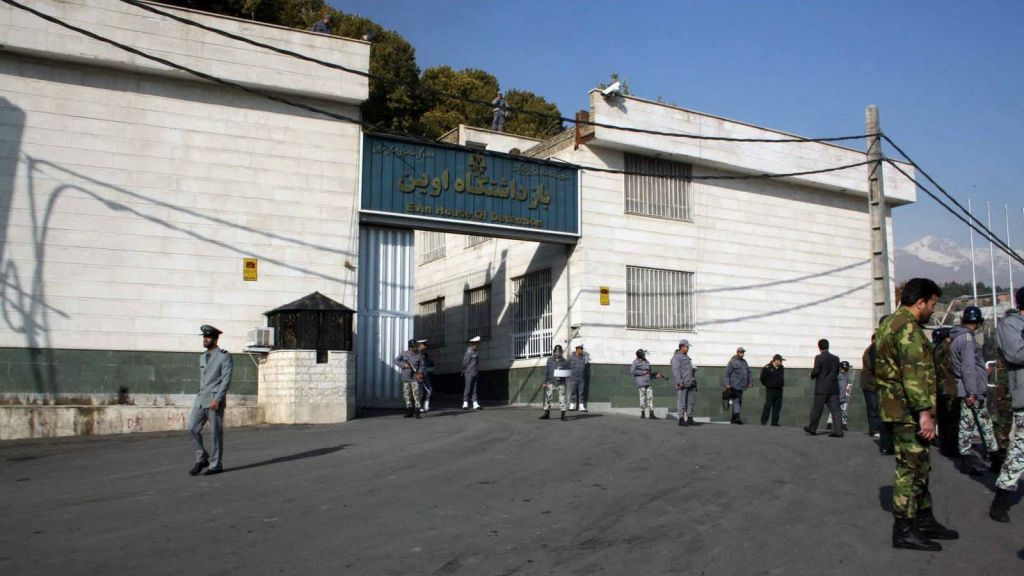PARIS, France — Prize-winning Iranian human rights campaigner Narges Mohammadi, currently jailed in Tehran’s Evin prison as protests grip the country, has not seen her 16-year-old twins for seven years.
She has not seen her husband Taghi Rahmani, himself a veteran of Iranian jails and now living in exile in Paris, for the past decade.
In a new restriction in apparent response to the protests, the authorities have stripped Mohammadi, 50, of her prison telephone cards for the next two months.
She had already been blocked by authorities from telephoning her children, Ali and Kiana, in France for the past seven months: the latest restriction means that now she cannot even speak to her family inside Iran.
“The system of prisons in Iran is torturing families,” Rahmani told AFP, in an interview in the French capital.
“It is not just a torture for the prisoner, but for the entire family. The children have not heard Narges’ voice for the last seven months.”
#FreeNarges we continue to ask #Iran to release #NargesMohammadi. @khamenei_ir @raisi_com @Amirabdolahian
#FreeNarges #HumanRights #FreeNarges pic.twitter.com/CmYf97XJM5— Nicolas (@OmNico72) October 22, 2022
The toughening of her prison conditions come as Iran presses a crackdown against five weeks of protests that have shaken its leadership over the death of Mahsa Amini, who was arrested by the notorious morality police.
Mohammadi had already been banned by the Iranian authorities from speaking to Rahmani, an influential opposition figure widely followed on social media, in prison calls.
“If they heard her speaking to me, they would cut the phone,” he said.
“They are torturing our children, as they have not seen Narges since 2015. I have not seen her since 2010.”
‘Prisoner of conscience’
In another blow to any hopes the family have of reunification, Mohammadi was handed another 15-month prison sentence this month, on charges of inciting protests. She is now serving a term of at least eight years in prison.
Her sentences have also come with additional punishments, such as an order for 70 lashes and, in the latest conviction, clearing up the municipal garbage once she is finally released.
“She does not participate in any of those case hearings. The judge is not independent, and she has said she will not participate,” said Rahmani.
Explaining the telephone card ban, he said: “The authorities do not want prisoners spreading information to the outside world.”
Prominent Iranian human rights activist Narges Mohammadi, center, sits next to Iranian Nobel Peace Prize laureate Shirin Ebadi, left, while attending a meeting on women’s rights in Tehran, Iran, on August 27, 2007. (AP Photo/Vahid Salemi, File)
A former colleague of Nobel Peace Prize-winning campaigner Shirin Ebadi, Mohammadi has campaigned against the death penalty and for justice for protesters killed in a crackdown on November 2019 demonstrations.
She has won numerous international prizes in recognition for her work, including, in 2011, the annual Per Anger Prize issued by the Swedish government. She has been tipped as a possible candidate for the Nobel Peace Prize.
Mohammadi’s activism has deprived her of her freedom for much of the past decade, after receiving a string of convictions by the authorities on national security charges.
She was released from prison in October 2020, and then arrested in November 2021 outside Tehran, while attending a memorial for a man killed during the November 2019 protests.
Mohammadi, who suffers from a heart condition, was given a brief break from prison in April for medical reasons, but was then transferred back to Qarchak prison outside Tehran and then sent to Evin.
“Narges is now in Evin, which is now full of people who have been arrested in the protests. The conditions in Evin and Iranian prisons in general are very deficient,” said Rahmani.
Amnesty International describes Mohammadi as a “prisoner of conscience” who has been arbitrarily detained and subjected to torture by the deliberate denial of healthcare for her heart condition.

Illustrative: A prison in Iran. (CC BY-SA Ehsan Iran/Wikipedia)
‘One of us always inside’
Rahmani described the situation in Evin as “inflamed” with tensions, saying that actions by prisoners in support of the protests led to a crackdown by the authorities on the night of the October 15 fire that ripped through the jail.
Prisoners from the women’s section and political detainees “were raising their voices in support of the protests every day in the courtyard.”
After the fire broke out, some prisoners were transferred to other jails like Gohardasht where security forces received them with so-called “welcome tunnels” by standing in rows and beating them as they came out of buses, he alleged, citing details from inside the prison.
Rahmani said there needed to be an international mission to investigate the situation in Iranian prisons, but the Islamic republic “would never accept that.”
Meanwhile, he and his family continue to count the personal cost of their resistance to the regime.
“One of us has always been inside (jail) while the other has been out. Life continues, but it is difficult. I hope when the children grow up they understand why we have taken sides.
“Narges does not stay silent. This is not acceptable for the Iranian government.”
But he acknowledged that the government reaction to the protests had already toughened her conditions.
“The pressure will get harder now.”
